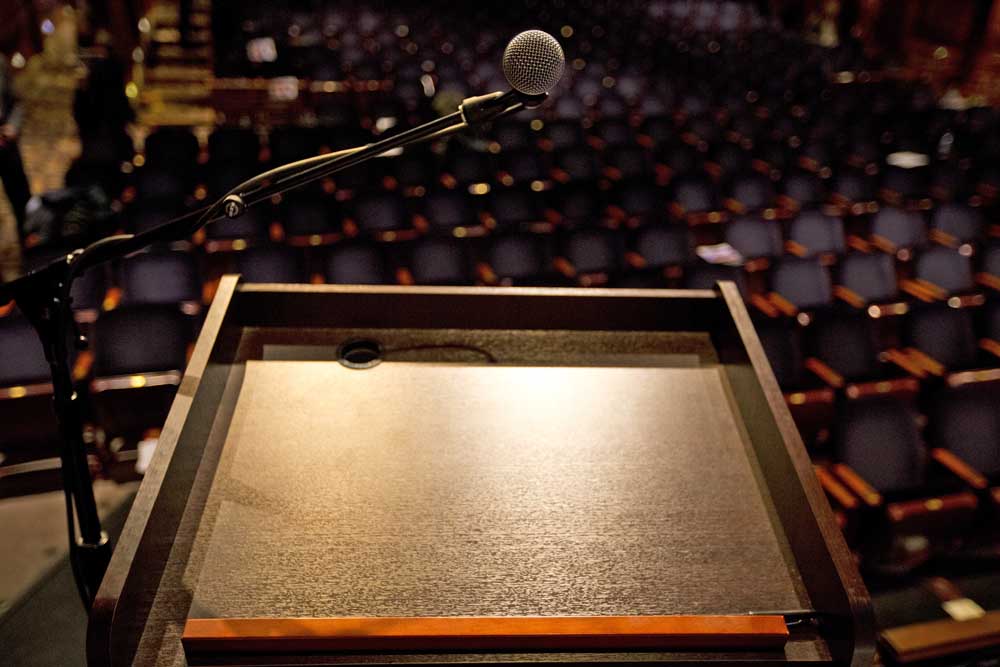Guest column: Don’t pretend there is a debate on climate
Published 12:00 am Thursday, June 21, 2018

- Guest Column
“False equivalence” is defined as “a logical fallacy in which two completely opposing arguments appear to be logically equivalent when in fact they are not.”
Our media is often guilty of false equivalence in an effort to appear unbiased on a subject by presenting two opposing sides of an issue when one side isn’t deserving (qualitatively or quantitatively) of the same level of attention based on the facts.
A recent guest column in The Bulletin written by Paul deWitt titled “Climate isn’t a Security Risk” provides a good example of the flaws in legitimizing a small but loud voice regarding, in this case, the denial of climate change.
In his column, deWitt references a recent presentation to which he takes exception given by Gordon Molitor of the Citizens Climate Lobby that cited several studies by the Department of Defense warning of the effects of climate change.
Mr. deWitt states the presenter “dutifully recited the usual climate alarmist talking points” (generally referred to as the facts), including the well-documented fact of “97 percent consensus of scientists about catastrophic climate change.”
In other words, roughly 19 of every 20 legitimate scientists in the world believe it to be real, to be significantly human caused, and to pose all kinds of risks to the earth.
As the column continues, deWitt lists many of the points made in the presentation detailing specific risks of climate change that he claims are flawed, including “more extreme weather events, glacial melt … and sea rise,” but which are all verifiable realities. He goes on to provide his counter arguments using the weak, unproven and highly partisan points often used by deniers (generally referred to as alternative facts).
Towards the end of his column, deWitt provides another example of the false equivalence concept by referencing a prior presentation he found more to his liking that denied climate change given by “an eminent astrophysicist and climate scientist,” Gordon Fulks.
What he doesn’t mention is that Dr. Fulks is a well-known leader of the 3 percent of scientists that are climate change skeptics.
Fulks presents himself as a climate change expert and he hits the speaking circuit presenting the so-called “other side” of the argument.
I don’t begrudge the right of deWitt to present opinions. However, I do condemn The Bulletin for continuing to provide a forum to an issue that is all but settled. If the newspaper feels compelled to present largely debunked opinions on important issues, it should, in an editor’s note, attach a qualifier detailing the extreme outlier nature of the position, particularly on issues of science.
Is that picking sides in an argument? No, it’s making sure that readers unfamiliar with the nature of the debate have a more accurate perspective.
If a letter writer suggested that the Earth was flat (such as NBA basketball star Kyrie Irving) or that the Sandy Hook Elementary School shooting was a hoax (self-styled conspiracy theorist and provocateur Alex Jones), would The Bulletin run those letters, especially without qualification by the editor?
One would hope not.
The Bulletin, and other media, do a great disservice in framing the climate change argument as an ongoing debate in that it reduces the public’s call to action to make the everyday individual lifestyle changes necessary to reduce its impact.
By giving deWitt and other skeptics equal time to voice their views The Bulletin continues to seed doubt in the minds of its readers.
— Keith Winsor lives in Bend.



